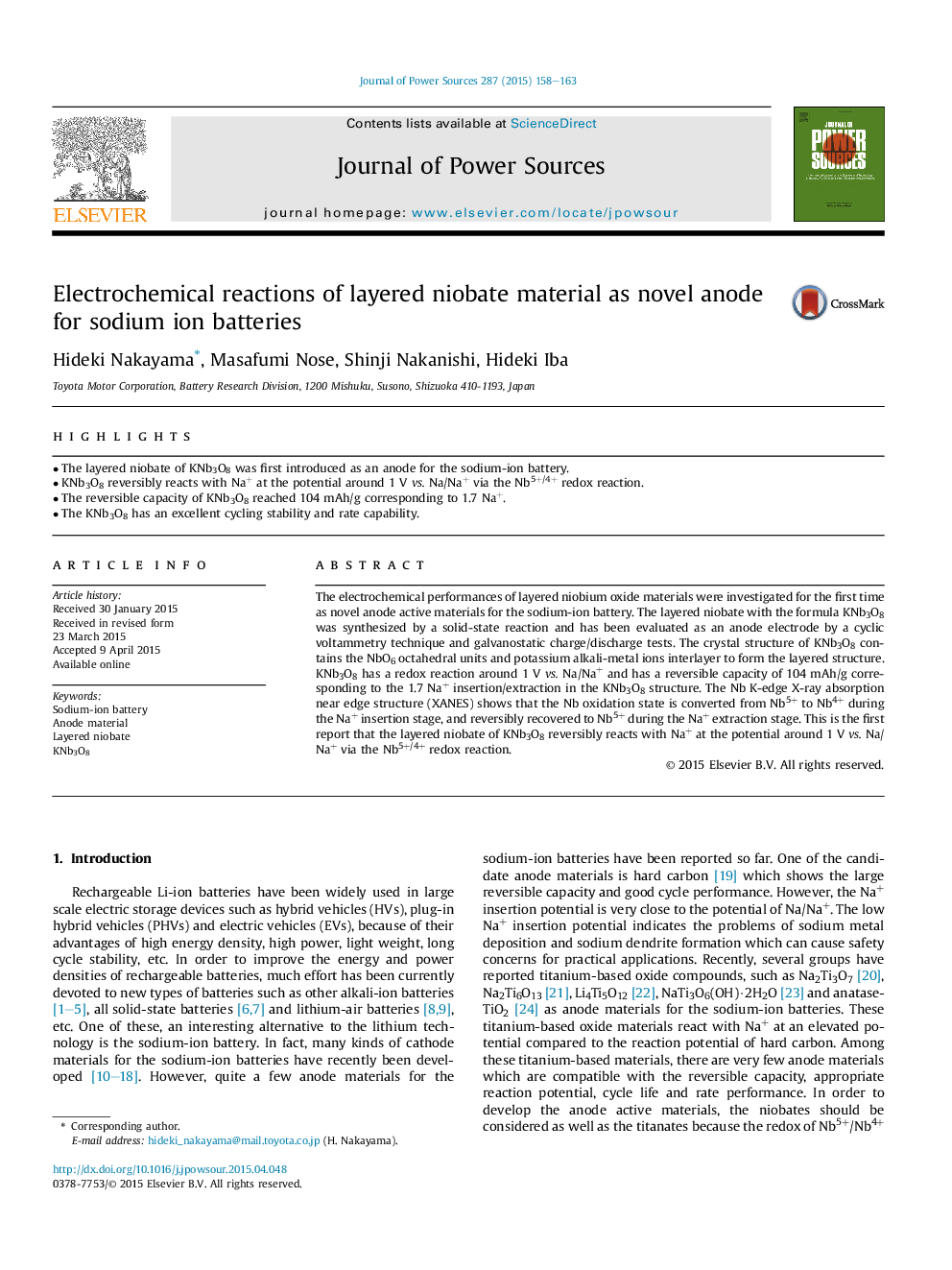| Article ID | Journal | Published Year | Pages | File Type |
|---|---|---|---|---|
| 7732505 | Journal of Power Sources | 2015 | 6 Pages |
Abstract
The electrochemical performances of layered niobium oxide materials were investigated for the first time as novel anode active materials for the sodium-ion battery. The layered niobate with the formula KNb3O8 was synthesized by a solid-state reaction and has been evaluated as an anode electrode by a cyclic voltammetry technique and galvanostatic charge/discharge tests. The crystal structure of KNb3O8 contains the NbO6 octahedral units and potassium alkali-metal ions interlayer to form the layered structure. KNb3O8 has a redox reaction around 1Â V vs. Na/Na+ and has a reversible capacity of 104Â mAh/g corresponding to the 1.7 Na+ insertion/extraction in the KNb3O8 structure. The Nb K-edge X-ray absorption near edge structure (XANES) shows that the Nb oxidation state is converted from Nb5+ to Nb4+ during the Na+ insertion stage, and reversibly recovered to Nb5+ during the Na+ extraction stage. This is the first report that the layered niobate of KNb3O8 reversibly reacts with Na+ at the potential around 1Â V vs. Na/Na+ via the Nb5+/4+ redox reaction.
Related Topics
Physical Sciences and Engineering
Chemistry
Electrochemistry
Authors
Hideki Nakayama, Masafumi Nose, Shinji Nakanishi, Hideki Iba,
